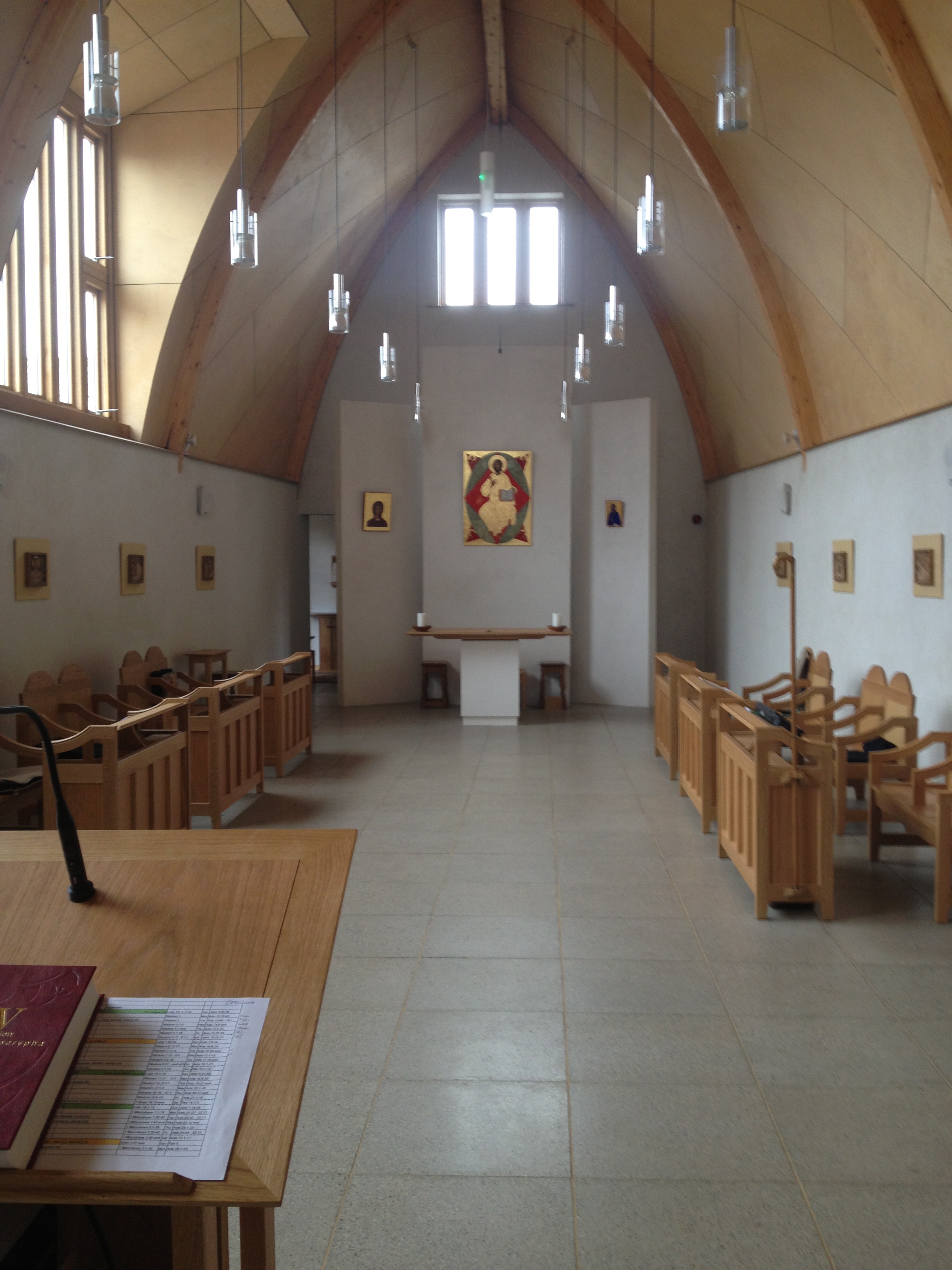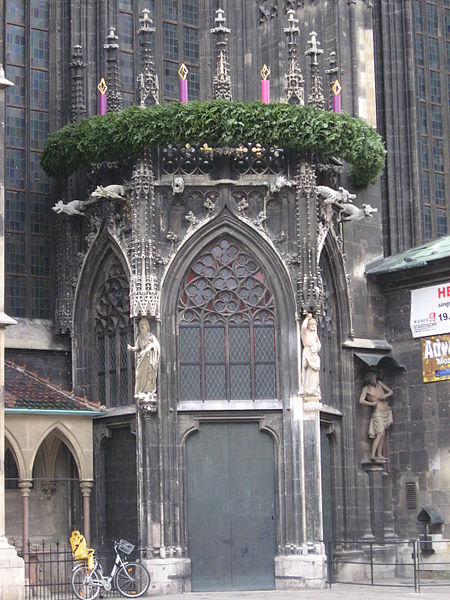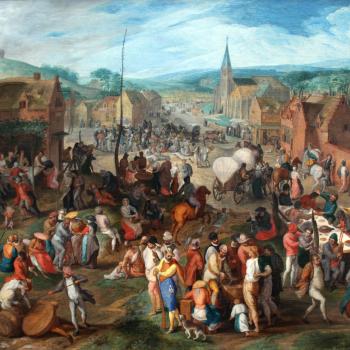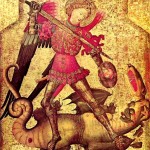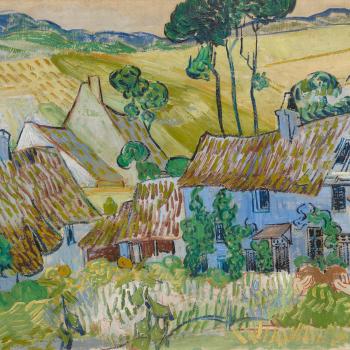David Russell Mosley
18 January 2014
On the Edge of Elfland
Beeston, Nottinghamshire
Dear Friends and Family,
A few days ago over at The American Conservative, Gracy Olmstead wrote an article entitled, ‘Why Millennials Long for Liturgy: Is the High Church the Christianity of the future?’ In the article, Olmstead cites several Protestant converts to various kinds of more Tradition (read Liturgical) branches of Christianity. This is a major trend I have seen myself in many of those with whom I attended university and even within myself. Olmstead posits that Millennials, the generation that spans from roughly 1977~1982-c.2000, are in search of deeper and more mystical faiths, often than those in which they were brought up (the article notes a former Reformed Baptist, and two Presbyterians who switched from a typically Low-Church Evangelicalism to various High-Churches). I myself know of several Presbyterians, some Nazarenes, and many within my own tradition (the Restoration Movement) who have gone high Methodist, Anglican Church of North America or Episcopalian, Eastern Orthodox, or Roman Catholic.
Perhaps it is the hidden hipster within me, but I hate doing things that are trendy, or be seen to be trendy. In fact, in a recent Facebook thread a joke was made (by me, of course) that trendy is the last word most people would use to describe me. That being said, I wonder what it is that drives people like myself to seek more High-Church expressions of faith. I don’t think its possible for me, at least, to say what the general motivations are toward High-Church expressions of the Faith, but I can at least try to describe why I feel this way.
For me, it was the study of Christian history that began to move me down this path. My own tradition has often stressed that the Church should look as much like it did in the book of Acts, particularly chapter 2, as it can. There are, I believe, many problems with this, but I don’t want to get into that. What learning about the history of Christianity, taught me, however, is that this picture we had of the apostolic church was for one, not as cut and dry as we tended to teach. Also, even if it was, things changed rapidly within a hundred years. You see, Protestantism can tend to focus on either the individual tradition of a given group (Baptist history, Presbyterian, Restoration Movement, etc.) or can focus too much on the brief pictures we’re given in the book of Acts which is meant to teach some bigger things than how to organise our churches. Doing a Master’s degree in Church History taught me that there is an awful lot between Acts chapter 2 and today and not all of it is bad.
In fact, as I learned about the history of Christianity, I realised that we technically share a vast majority of the same history with our Roman Catholic and Eastern Orthodox brothers and sisters. Working with rough dates and generalisations, it could be said that all of Christianity (or the majority anyway) shares all of its history from the Life of Christ until 1053 (the typical date given for the schism between East and West). Western Christianity then continues until, roughly, the sixteenth century and the Reformation. What this means, I realised, is that there are 1600 years where we share ancestry and history with Roman Catholics and about 960 years that we also share with the Eastern Orthodox. This taught me that we need to take the practices and theology of those periods much more seriously than we tend to. We cannot simply write off ancient and medieval theologians because they are Roman Catholic or Eastern Orthodox and not Protestants. There were no Protestants!
This plus my own work, mostly private, in recent years in the theology behind much that is contained within Liturgy (the Church Calendar, the Divine Hours,) and high sacramentality (Eucharist and Baptism as sacraments and the world as sacramental) has left me desirous of more than I have often received in Low-Church Evangelicalism. Even now, I attend an Anglican church here in Nottingham, but, particularly the service we attend, it still tends toward a more Low-Church expression, desiring to be more Spirit led, which I believe means allowing for spontaneity (not a bad thing, in my opinion, though rather limiting since that attitude can tend toward saying the Spirit doesn’t move, or move as freely, within structure).
The issue for Low-Churches, however, is not one of simply having a stylistically more liturgical service. That could perhaps help with retention of young people, but it doesn’t get to the root of the desire, at least not for me. This isn’t, for me, merely a preference for a traditional style of worship. It isn’t as though I unequivocally prefer hymns or chants to praise choruses and contemporary Christian worship music (I actually like some of the latter); nor is merely a desire for more communal prayers; lectionary based preaching; or more attention to the Eucharist. It is the theology behind so many of these things. I read the Scriptures and the great theologians of the Ancient and Medieval worlds and I see a worldview that sees the World as constantly upheld by and participating in the God, a world where Angels can appear to young women, where bread and wine can be body and blood, where miracles can happen. In essence, I see a different world than the one the Enlightenment and science divorced from theology and philosophy has taught us to see. I see a world where time can be used to tell the story of the Incarnation, the Crucifixion, the Resurrection, everyday, every week, every year. I’m not sure, however, that most standard Protestant theologies can give us this, tied as they often are to Modernism. Nevertheless, I don’t give up hope. I hope, pray, write, and teach about these things in the hopes that change can be affected, not simply in what we do, but in what we believe. If something doesn’t happen, however, I firmly believe we will see more young Christians and young converts, attaching themselves to traditions which already have these elements of liturgy and sacramentology, because let’s face it, that is much easier than changing our traditions themselves.
Sincerely yours,
David Russell Mosley

